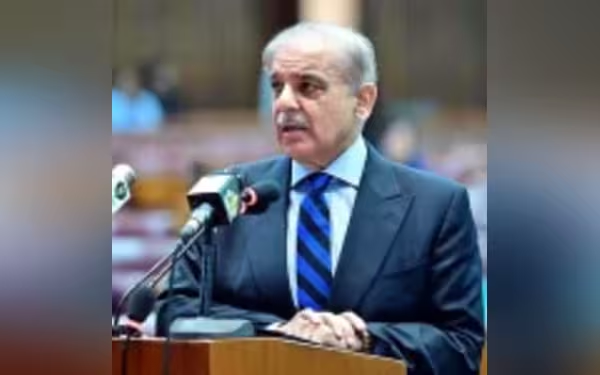Tuesday, October 29, 2024 03:25 AM
Pakistan Federal Cabinet Approves Privatisation of 13 Power Entities
- Privatisation includes nine power distribution companies.
- Government aims to attract foreign investment.
- Restructuring efforts to improve operational efficiency.
 Image Credits: pakobserver
Image Credits: pakobserverThe Federal Cabinet of Pakistan has approved the privatisation of 13 entities under the Power Division, aiming to enhance efficiency and attract foreign investment.
The Federal Cabinet of Pakistan has recently approved the privatisation of 13 entities under the Power Division. This decision is part of a broader strategy to enhance the efficiency of state-owned enterprises and attract foreign investment. The move comes as the government aims to shift its focus from managing businesses to creating a conducive environment for private sector growth.
Among the 13 entities approved for privatisation, nine are power distribution companies. Out of the 11 government-owned power distribution companies, only Quetta Electric Supply Company and Tribal Electric Supply Company were excluded from the privatisation list. This indicates a significant step towards reducing the financial burden on the government by transferring the management of these companies to the private sector.
In addition to the power distribution companies, the cabinet has also included power generation companies (GENCOs) in the privatisation plan. Furthermore, six entities within the Power Division have been declared as "national important entities," which include Power Holding Limited and Central Power Purchasing Agency. This designation highlights their significance in the national energy landscape.
The cabinet has also approved the restructuring of four Power Division entities, including the previously mentioned Quetta Electric Supply Company and Tribal Electric Supply Company. Additionally, the restructuring of Islamabad-based entities NTDC and NESPAK has been sanctioned. These restructuring efforts are aimed at improving operational efficiency and service delivery.
Earlier in May, Prime Minister Shehbaz Sharif announced a comprehensive plan to privatise all state-owned enterprises, expanding the initial focus on only loss-making firms. During a meeting on the privatisation process, the Prime Minister emphasized that the government’s role is not to engage in business but to foster a business-friendly environment that encourages investment.
In a related development, Prime Minister Shehbaz Sharif is also implementing a strategy to attract Foreign Direct Investment (FDI) for building Information Technology infrastructure in Pakistan. Speaking to a delegation from the Asia Internet Coalition, led by Managing Director Jeff Paine, the Prime Minister expressed his commitment to promoting fundamental infrastructure based on Artificial Intelligence (AI). He aims to position Pakistan as a leading country in the region in the field of AI infrastructure.
The recent decisions made by the Federal Cabinet regarding the privatisation and restructuring of power entities signify a pivotal shift in Pakistan's economic strategy. By moving towards privatisation, the government aims to enhance efficiency, reduce losses, and attract foreign investment, particularly in the technology sector. This approach not only aims to improve the energy sector but also positions Pakistan as a competitive player in the global market.













